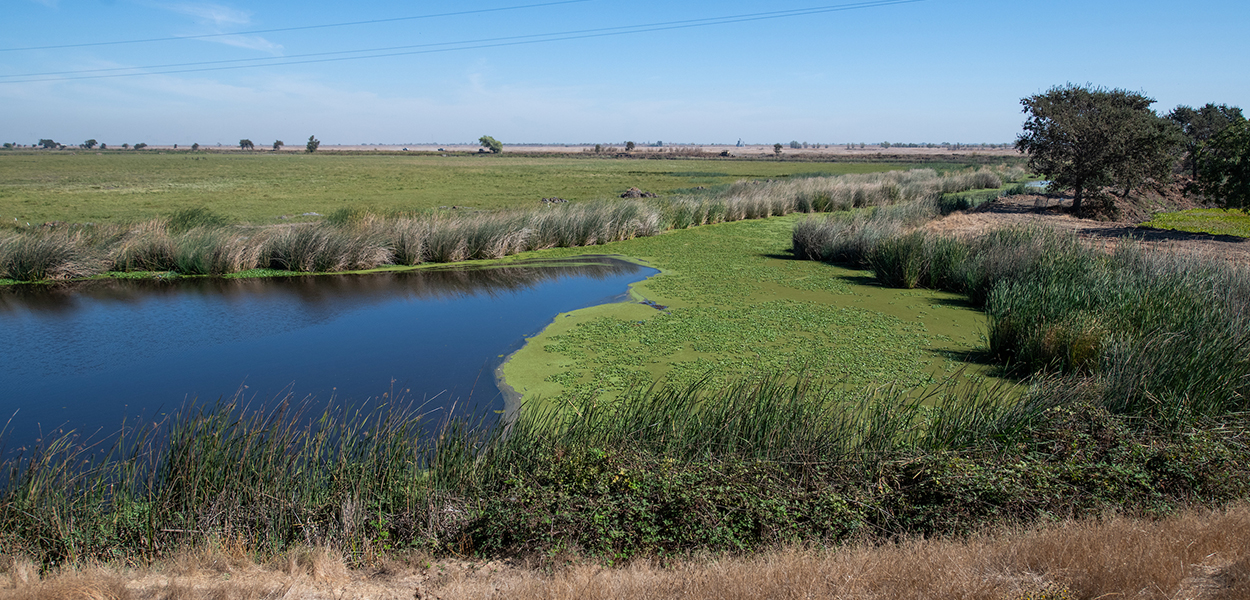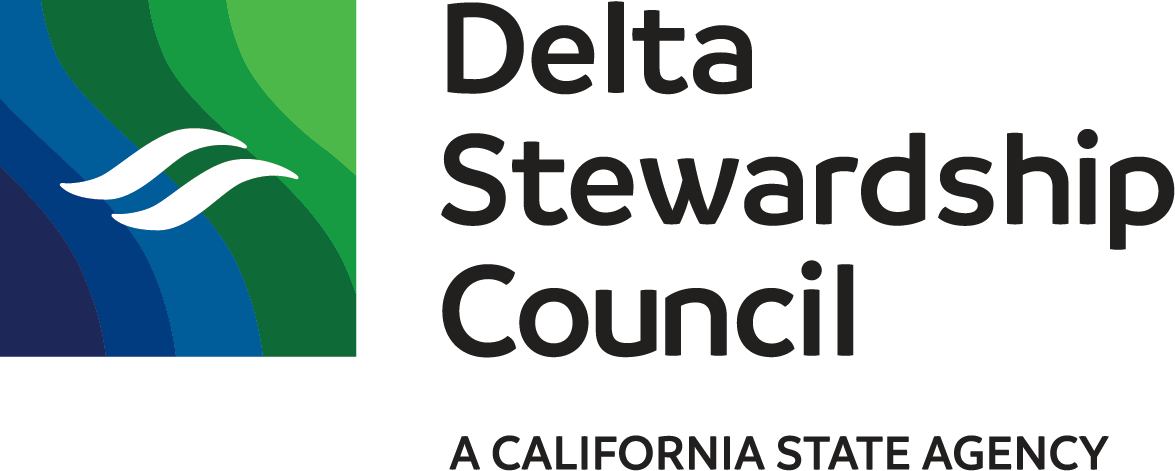
Photo: Florence Low / California Department of Water Resources
Delta Adapts: Creating a Climate Resilient Future
December 7, 2020
By Jessica R. Pearson
California Governor Gavin Newsom’s recent Executive Order (N-82-20) reinforced the urgency of accelerating “nature-based solutions to our climate and extinction crises.”
In the words of the Governor, “the climate change crisis is happening now.” The Executive Order mandates a number of clear and urgent measures, including directives for agencies to (1) utilize best available science and traditional ecological knowledge to build climate resilience; (2) expand communication; (3) advance multi-benefit, voluntary, and cooperative approaches to restoring biodiversity; and (4) engage stakeholders across California’s diverse communities, advancing equity and opportunity for all regions of California.
Using best available science is a foundational practice of the Delta Stewardship Council (Council). The Delta Reform Act requires the Council to make use of the best available science to implement the Delta Plan, including relying on the advice of the Delta Independent Science Board, and the Delta Plan acknowledges that climate change has impacted and will increasingly impact the Sacramento-San Joaquin Delta as a water source, as an ecosystem, and as a place. Anticipating and preparing for the climate crisis has always been integral to pursuing our agency’s mission.
In 2018, the Council took a bold step toward better understanding future effects of climate change on the Delta by initiating an unparalleled study of climate vulnerabilities for the entire Delta region. The study, which will be released in draft form in January, is part of a larger Delta Adapts initiative, comprised of a vulnerability assessment and an adaptation plan. This initiative will inform future work at the Council, provide local governments with a toolkit of information to incorporate into their regulatory and planning documents, integrate climate change into the State’s prioritization of future Delta actions and investments, and serve as a framework to be built upon by the Council and others in years to come. The initiative uniquely implements cutting-edge modeling and an equity analysis.
Notably, Delta Adapts uses both deterministic and probabilistic modeling: deterministic modeling shows the projected outcome(s) for a defined set of parameters (including specific amounts of sea level rise suggested for planning by the Ocean Protection Council); and probabilistic modeling provides an exploration of a wider range of potential outcomes. Probabilistic modeling is particularly useful for anticipating the impacts of climate change on the Delta because it allows the Council to explore the full range of possible outcomes for the region and to evaluate and respond accordingly, which is consistent with our commitment to adaptive management. The method that we are using evaluates Delta flood risks across a very wide range of conditions, identifies areas with higher or lower risk of flooding, and indicates whether the flood risk is coming from sea level rise or increased riverine flows.
Flood risk is one of the most pressing of the threats to the Delta. State and local agencies have been fighting floods and investing in Delta flood protection for the past several decades. These investments have resulted in a safer and more resilient system. The next several decades will bring an unprecedented acceleration of change.
So, what specifically do we know? Initial results from Delta Adapts show that by 2050, approximately 35 percent of the Delta will be exposed to flooding during a 100-year storm. This could directly affect over 10 percent of the Delta’s population, nearly 65,000 people. Climate change will not impact all communities equally. Nearly 11,000 of these residents live in areas considered most socially vulnerable to flooding. Social vulnerability means that a person, household, or community has a heightened sensitivity to the climate hazards and/or a decreased ability to adapt to those hazards. Sensitivity is often an individual characteristic because it relates to a person’s health and work; adaptive capacity generally relates to households or larger communities because it is influenced by social networks and collective resources.
The social vulnerability index that we’ve developed for Delta Adapts includes 14 factors to identify communities with multiple vulnerabilities – factors include race and ethnicity, linguistic isolation, access to vehicles and health insurance, and more. This index will inform the development and implementation of adaptation strategies to address climate vulnerabilities.
These factors reflect the complex and intersectional relationship between Delta residents’ socio-economic status and their susceptibility to the climate crisis. To better support vulnerable populations, the Council has launched a concerted effort to expand our outreach: we are partnering with community-based organizations (CBOs) to improve our understanding of the causes of environmental inequity and to seek solutions founded in environmental justice – the fair distribution of environmental benefits and burdens. In addition to our work with CBOs, we have continued our practice of collaboration with partner state, federal, and local agencies and our focus on applying the best available science to inform management decisions.
The forthcoming Delta climate vulnerability assessment is innovative and essential, but it is only a first step. Following completion of the assessment, we will use the information gathered from our modeling efforts and our equity assessment to begin development of an adaptation strategy. An effective plan for adaption in the Delta will take teamwork and input from a diverse range of stakeholders. We invite you to join us in this effort.
Subscribe to the Council’s listserv so that we can alert you when the draft Vulnerability Assessment is ready for your review.
About the Author

About Executive Officer Jessica R. Pearson
Jessica Pearson is the Executive Officer for the Delta Stewardship Council. She has been with the Council since 2011, serving as Policy Advisor and Legislative Advisor. Her career in public service began as a Capital Fellow working at the Natural Resources Agency. Pearson went on to serve as an advisor for the Director of the California Department of Water Resources and as Deputy Secretary for the California Natural Resources Agency Secretary. She earned a bachelor’s degree from UC San Diego, a master’s degree from UC Davis, and lives behind levees and amid trees in Sacramento with her husband, two children, and several backyard chickens.

